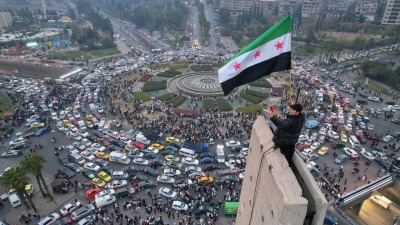The Supreme Election Committee postpones voting in 3 governorates due to security challenges

The Supreme Election Committee in Syria has decided to postpone the voting process in the governorates of Suwayda, Hasakah, and Raqqa until suitable conditions and a safe environment are available, due to the security challenges facing those areas.
Media sources reported that the decision comes out of the committee's concern to ensure fair representation for the three governorates in the People's Assembly. A statement from the committee mentioned: "Out of the Supreme Election Committee's commitment to fair representation in the People's Assembly for the three Syrian governorates (Suwayda - Hasakah - Raqqa), and given the security challenges these governorates are facing, the committee has decided to postpone the electoral process in the mentioned governorates until suitable conditions and a safe environment are available for conducting it, and their allocated seats will remain reserved until elections can be held in them as soon as possible."
This announcement came one day after the practical procedures for the elections were launched, which were announced by the head of the committee, Muhammad Taha Al-Ahmad, in an interview with "Sky News Arabia," following the Syrian president's approval of the temporary electoral system for the People's Assembly.
The new electoral system is based on the formation of a Supreme Election Committee appointed by the President of the Republic, which oversees the entire process, where two-thirds of the council members, totaling 210 seats, are elected through local electoral bodies, while the remaining third is appointed by presidential decree, with the distribution of seats according to the population distribution of each governorate.
The system requires that a member of the electoral body must have obtained Syrian nationality before May 1, 2011, and must not have run for the presidency or the People's Assembly after 2011 unless it is proven that they defected, and must not be a supporter of the "previous regime" or "terrorist organizations".
In response to questions about the reason for adopting the indirect system, Al-Ahmad explained that "many Syrians inside and outside the country do not possess identification papers due to displacement, destruction, and the burning of civil records by the previous regime, which prompted us to innovate a mechanism that allows the People's Assembly to function as one of the three authorities in the new Syria."
To alleviate concerns about undermining the legitimacy of the assembly, he pointed out that "all Syrians have the right to object to the members of the electoral bodies through the appeals committees spread across 62 electoral districts, which ensures the selection of scientific and community competencies." He emphasized that the upcoming assembly will undertake the tasks of legislating laws, representing the Syrian community, and holding the government accountable through budget oversight.